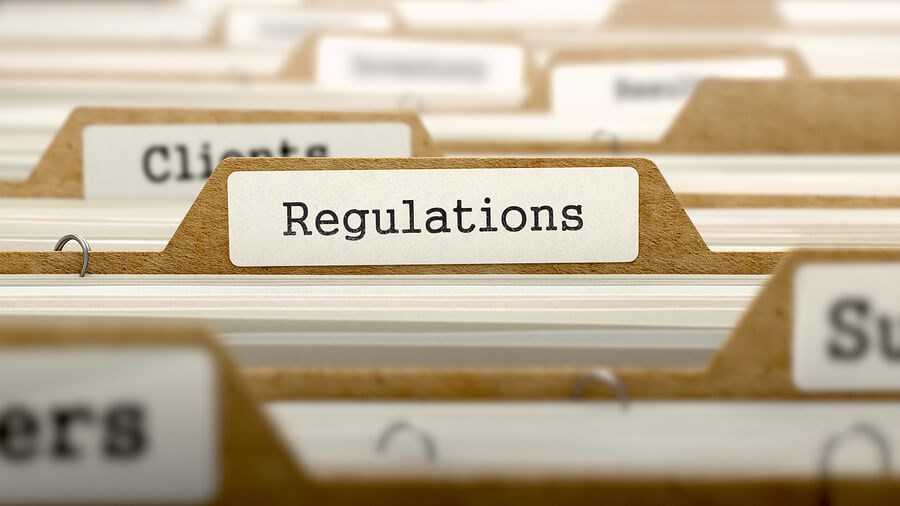11 Landlord Regulations You May Not Be Aware Of

If you’re thinking of becoming a private landlord for the first time, there are a number of things you need to be aware of. Ignorance of the law is no excuse, and you’ll have a number of responsibilities to your tenants that must be taken seriously.
It’s no good pressing ahead with trying to rent out a property without all the necessary paperwork and checks in place, as this could lead to you being fined or prosecuted.
Keep reading to discover 11 landlord regulations you may not be aware of.
#1 - Fire and smoke alarms
As a landlord you’re legally obligated to provide a safe environment for your tenants, and fire and smoke alarms certainly fall into this category. Here’s an overview of what you need to provide:
- Each hallway/landing area should have one smoke alarm.
- The main living area should also have one smoke alarm.
- Every floor in the property must be fitted with at least one alarm.
- The kitchen in your rental property should be fitted with a heat alarm.
- Safeguards in the form of battery backups must be in place to provide protection in the event of a power cut.
- All your alarms should be wired together rather than being stand-alone.
#2 - Electrical installations and appliances
Gas safety requirements for landlords have been well publicised over recent years, but the regulations regarding electricity in rental properties are less well known.
- Every five years you need to have an Electrical Inspection Condition Report (EICR) carried out. The resulting certificates must be kept for six years and your tenants should be given a copy for reference.
- Every 12 months, Portable Appliance Testing (PAT) should be carried out by an approved contractor.
#3 - Gas safety
If you’ve not been a landlord before, you may not be aware of the specifics regarding the gas safety regulations. Here’s what you need to know:
- You’ll need a gas safety certificate which must be renewed annually. You’ll also have to keep copies of these certificates for two years and let your tenants have a copy for their peace of mind.
#4 - Legionella bacteria
The regulations around this bacteria and Legionnaire’s Disease need to be taken seriously. There’s a guide available from the Health & Safety Executive (HSE) which explains things in more detail. You need to carry out a risk assessment and keep records of what checks and necessary measures have been put in place to reduce chances of an outbreak.
#5 - Carbon monoxide detectors
If your property contains a combustion device (oil, solid fuel or gas) such as a boiler, then you need to fit carbon monoxide detectors.
There are regulations you need to follow for the placement and use of these:
- They must be compliant with the relevant British Standard and in each space that contains an appliance.
- Each living area or bedroom which contains part of the flue needs to have a detector.
- If you’re using battery powered detectors, the batteries must last for the expected life of the detector.
- You can use mains powered carbon monoxide detectors, but not those that are plug-in devices.
#6 - Energy Performance Certificate
The Energy Performance Certificate (EPC) is required to be displayed in your rental property for tenants to see. The certificate contains information on energy use and typical costs for the property as well as advice on how to reduce energy consumption and save money.
#7 - Landlord registration
Many first-time landlords aren’t aware that they need to register with their local authority before renting out their property. You can find more information and register online on The Scottish Government website.
#8 - Deposit protection
The maximum deposit you’re allowed to ask a tenant for is twice the agreed monthly rent. By law, this money must be lodged with one of the three recognised tenancy deposit schemes.
#9 - Tenant Information Pack
The Tenant Information Pack is not the same as a tenancy agreement. If you don’t provide this to your tenants, you can be fined up to £500. Learn more about what the Tenant Information Pack contains and what your responsibilities are.
#10 - The Repairing Standard
The Repairing Standard is a basic level of repair which all private rented accommodation must reach. Trying to rent out a substandard property is not worth the risk.
#11 - Property inspections
As a landlord you should carry out at least one inspection of the property during each tenancy. However, you need to comply with the law and give your tenants a minimum of 24 hours notice (preferably in writing).
Summary
While this list is not exhaustive, we hope that it’s provided you with a good understanding of many of the laws and regulations you need to comply with when becoming a private landlord.
If you need more information on becoming a landlord or are looking to sell your property rather than let it out, get in touch.
